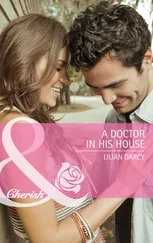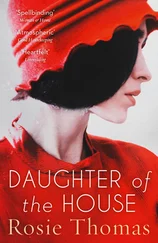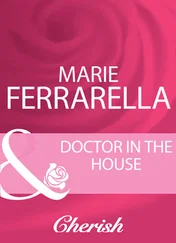Richard Gordon - DOCTOR IN THE HOUSE
Здесь есть возможность читать онлайн «Richard Gordon - DOCTOR IN THE HOUSE» весь текст электронной книги совершенно бесплатно (целиком полную версию без сокращений). В некоторых случаях можно слушать аудио, скачать через торрент в формате fb2 и присутствует краткое содержание. Жанр: Юмористическая проза, на английском языке. Описание произведения, (предисловие) а так же отзывы посетителей доступны на портале библиотеки ЛибКат.
- Название:DOCTOR IN THE HOUSE
- Автор:
- Жанр:
- Год:неизвестен
- ISBN:нет данных
- Рейтинг книги:3 / 5. Голосов: 1
-
Избранное:Добавить в избранное
- Отзывы:
-
Ваша оценка:
- 60
- 1
- 2
- 3
- 4
- 5
DOCTOR IN THE HOUSE: краткое содержание, описание и аннотация
Предлагаем к чтению аннотацию, описание, краткое содержание или предисловие (зависит от того, что написал сам автор книги «DOCTOR IN THE HOUSE»). Если вы не нашли необходимую информацию о книге — напишите в комментариях, мы постараемся отыскать её.
DOCTOR IN THE HOUSE — читать онлайн бесплатно полную книгу (весь текст) целиком
Ниже представлен текст книги, разбитый по страницам. Система сохранения места последней прочитанной страницы, позволяет с удобством читать онлайн бесплатно книгу «DOCTOR IN THE HOUSE», без необходимости каждый раз заново искать на чём Вы остановились. Поставьте закладку, и сможете в любой момент перейти на страницу, на которой закончили чтение.
Интервал:
Закладка:
Richard Gordon
DOCTOR IN THE HOUSE
First published in 1952
'A parcel of lazy, idle fellars, that are always smoking and drinking, and lounging…a parcel of young cutters and carvers of live people's bodies, that disgraces the lodgings.' _Bob Sawyer's landlady in_ PICKWICK PAPERS
To Jo
Note
St. Swithin's Hospital does not exist; neither do its staff, students, nor patients.
1
The large and completely unused set of surgical instruments that my father kept in his consulting-room held for the old gentleman the melancholy fascination of a hopefully gathered layette to an ageing childless wife. For twenty years he had not troubled to exercise the self-deception that he might one day come to use them. They lay in the slots of their metal trays, fitting in with each other like the pieces of a Chinese puzzle. There was a sharp-toothed circular trephine for boring holes in the skull; bone forceps like a pair of shiny pliers; a broad hacksaw for amputations; scissors with long, sharp blades; probes, trocars, and bistouries; and a row of scalpels as impotent as a line of ceremonial swords.
The instruments were in a heavy black wooden box with his name in copperplate script on its tarnished metal label. He had stowed it away some years ago at the bottom of a tall cupboard in the corner, where it had become silted over with old medical journals, out-of-date diaries, and bright advertisements from the big drug firms that he had slung in there from time to time with the vague belief that he might want to refer to them one day. Occasionally, rummaging his way through the dusty papers, he would uncover the box and light up in himself a momentary glow of frustration: he had once been convinced he was going to be a great surgeon, and the instruments were an expensive gift from his admiring mother the day he qualified as a doctor.
My grandparents were, unhappily, the only ones to share his confidence in his professional destination. The first step in becoming a surgeon of even mediocre ability is the acquisition of the Fellowship of the Royal College, an examination he sat regularly twice a year for six years before he faced up to the truth that his ability was not a powerful enough propellant for his ambition. His history after that was the not disagreeable one of a good many other unsuccessful young surgeons: he married and went into general practice, in the provinces.
When he saw the brass plate being screwed on to his new doorpost he recognized it as the coffin-lid of his surgical aspirations. For a few months he was bitter at his abandonment of specialization, but his resentment was rapidly smoothed down by the heavy planes of domesticity, busy practice, and the momentous trivia of provincial social life. He became a prosperous, and even fairly efficient, general practitioner, and reflected on his dead ambitions only when he came across his case of instruments or thought seriously about the education of his son.
Like most doctors' children, I had from my earliest schooldays come to look upon a medical qualification like a hereditary title. Graduation seemed a future occurrence over which I had no control; indeed, neither my parents nor myself contemplated my earning a living by any other means. My father sometimes wondered timidly if I might fulfil his own surgical hopes, but experience had made him guarded in predicting his son's postgraduate attainments. I had certainly not demonstrated in adolescence any aptitude for my already settled career. Up to the age of six I had a habit of pulling to pieces birds and small mammals ingeniously trapped in the garden, and this was thought by my parents indicative of a natural inclination towards the biological sciences. The practice of medicine was to me no more than a succession of mysterious people coming twice a day through the front door, and the faint tang of antiseptic which had been in my nostrils as long as I could remember, like the scent of the sea to a fisherman's son.
Once my father stood me up on his leather examination couch, on which the most respected bodies in the district had lain in their forbidding nakedness, and showed me the framed photograph that hung above it. It was the rugby team at his old hospital, the year he had managed to scrape into the side owing to a fortunate attack of diphtheria in the regular wing threequarter.
'Which one's you, daddy?' I asked, running my forefinger along the double row of solemn young men in shorts.
He indicated a thin fellow at the end of the back row.
'Good old St. Swithin's!' he muttered sadly. 'You'll be there one day, my lad. And mind you get in the first fifteen like your father did.'
His love for his old hospital, like one's affection for the youthful homestead, increased steadily with the length of time he had been shot of it. As a medical student, he had felt a surge of allegiance to the place only for an hour or so a week on the football field; now it represented a glowing period in his life when he was single, irresponsible, and bouncing with ambition. I grew into the impression that St. Swithin's combined the medical efficiency of the Mayo Clinic with the teaching of Hippocrates and the recreational facilities of the Wembley Stadium. For most of my schooldays the place was an ill-defined but agreeable and definite destination, like Heaven, and it was not until I found myself on the point of going there that I troubled to crystallize my thoughts about it.
St. Swithin's was, in fact, an undistinguished general hospital which spread its grey, insanitary-looking walls across a grimy section of North London. It was not even one of the oldest hospitals in the Metropolis, and as age is esteemed in England as the first of the virtues, this alone imbued the staff and students with a faint sense of inferiority. St. Swithin's did not possess the proud antiquity of St. Bartholomew's, which for several centuries looked on to the crisp green of Smithfield and the sweet waters of the Fleet tumbling unconfinedly into the Thames; nor was it as ancient as St. Thomas's over the River, which was already old when Shakespeare came to the Globe. Its origins were obscure, but there was a tradition that it was founded to deal with the outbreak of syphilis that rolled over Europe after the discovery of America, whence it had been imported by Columbus's sailors (so setting a persistent maritime habit). St. Swithin's had, however, been in existence sufficiently long for Londoners to accept it as one of the settled institutions of their city that seemed completely reliable, like Westminster Bridge or St. Paul's. It now attended only to the pale inhabitants of the streets crammed against its walls, to whom it had been for three or four generations simply 'The Hospital,' a place you went into and either got better or died according to your luck.
I had not seen St. Swithin's until the morning I was interviewed by the Dean of the Medical School. The Dean had replied to my father's explanatory letter with the assurance that the school was always glad to see the sons of former Swithin's men, but he added that he was nevertheless obliged by the Governors to inspect each candidate and allot places solely on the strength of the aptitude they showed for the practice of medicine. As the course of study was fixed by law for a time not less than six years, this struck me as a task comparable in difficulty with determining the sex of day-old chicks. For a week I was coached earnestly by my father on every question the Dean could possibly ask; then I put on my best suit and went up to London.
St. Swithin's was heavily disappointing. It was like the time I was taken to the Zoo to see my first elephant: it was distinctive enough, but not nearly so large, clean, and dignified as I had imagined.
I walked gingerly inside the forecourt, which was separated from the main road by a long line of heavy iron railings and a gatehouse. The court contained a few plane trees and a patch of pale grass in the centre, and a pair of large black statues representing St. Swithin's most renowned sons. On the right of the gate as you went in was Lord Larrymore, the famous Victorian physician who maintained for some years that he had almost discovered the cause of tuberculosis but was cruelly forestalled by Robert Koch in Germany. On the left you saw Sir Benjamin Bone, Larrymore's celebrated surgical contemporary, who was nearly appointed to the Queen's household but was dropped at the last minute because Her Majesty objected to the expensive, but distracting, aroma of cigars and brandy exuded all day from his person.
Читать дальшеИнтервал:
Закладка:
Похожие книги на «DOCTOR IN THE HOUSE»
Представляем Вашему вниманию похожие книги на «DOCTOR IN THE HOUSE» списком для выбора. Мы отобрали схожую по названию и смыслу литературу в надежде предоставить читателям больше вариантов отыскать новые, интересные, ещё непрочитанные произведения.
Обсуждение, отзывы о книге «DOCTOR IN THE HOUSE» и просто собственные мнения читателей. Оставьте ваши комментарии, напишите, что Вы думаете о произведении, его смысле или главных героях. Укажите что конкретно понравилось, а что нет, и почему Вы так считаете.






